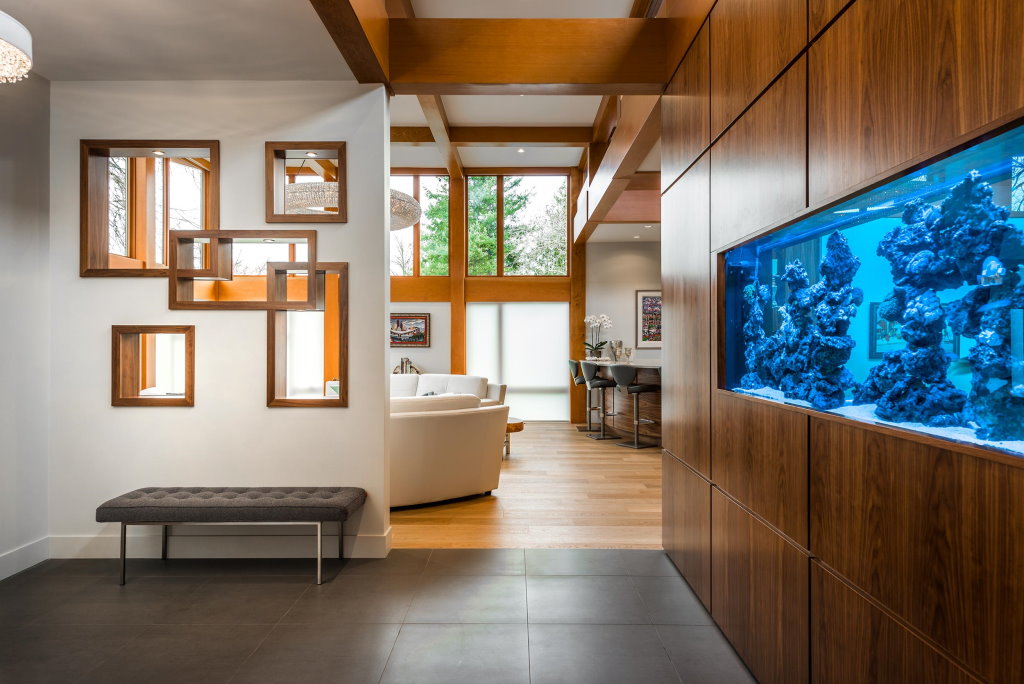If I knew then what I know now – something no homeowner wants to say after their custom home is built, but it’s something we hear far too often. There are a lot of lessons that can be learned in the process of building a custom home. Sometimes it’s a matter of asking the right questions to save you time, stress, and money.
Drawing on three decades of experience with custom home building, we’ve put together some of the most frequent “should have asked” questions to help complete an on-time, on-budget, forever home that you love.
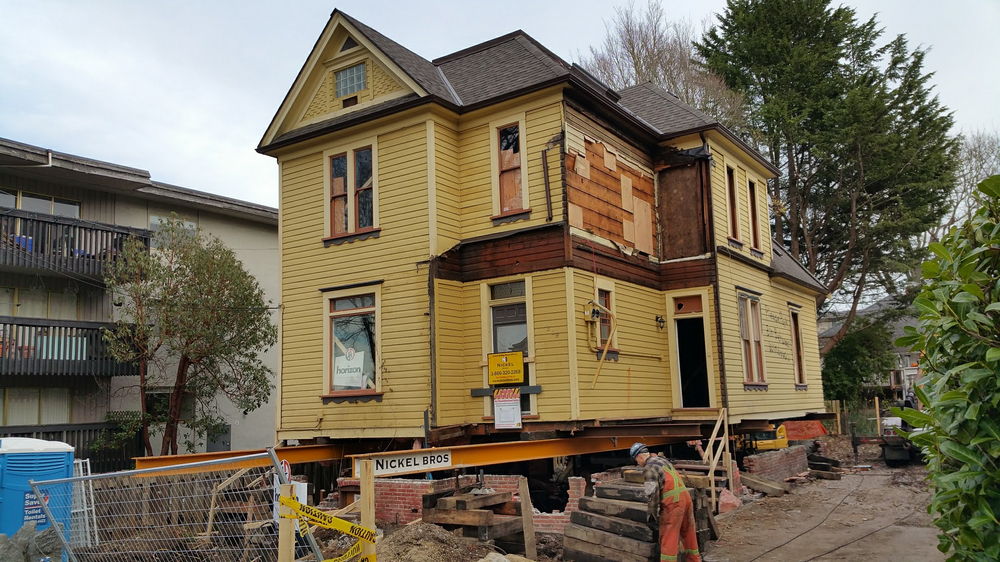
1. How does custom home financing work?
Getting started on your new home build is exciting! The property has been acquired, drawings are developed, and plans are coming together. There’s a natural momentum that begins to unfold and before you know it you’re signing contracts and making commitments. If you’re financing the building of your home, there are some key questions you’ll want to ask at the outset.
After the drawings are complete, your builder will price the construction in consultation with your architect. Your bank will approve funds based on the appraisal of those drawings. Funds are approved to build your specific house but they aren’t given to you all at once. Instead, they are released at certain construction milestones, which means money can be held up if those deadlines aren’t met. That’s why design changes after financing — even small ones — are such a big deal.
The best way to avoid delays and ensure your project progresses smoothly? Sync builder payments with the banks! Asking questions at the outset will help make sure everything goes as planned. What are your options if construction isn’t completed on time or funding becomes delayed? Get specific details from each party involved — builder and bank — so that you’re prepared in case anything unexpected happens down the line. It could mean the difference between a huge delay and no delay at all.
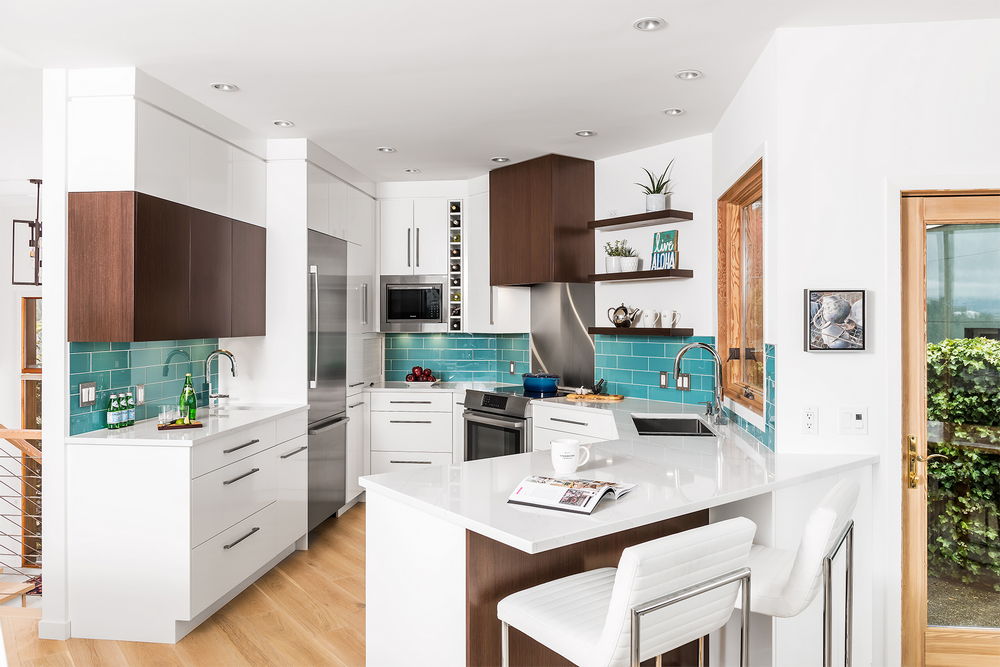
2. How do soft costs impact your custom home project?
Soft costs are intangible items, such as design work, real estate fees, inspection fees, project management fees, and taxes. Costs for building and other permits would also be grouped under this umbrella. Soft costs roughly constitute about 30 percent of the total construction budget.
Soft costs aren’t standardized. They’re calculated differently from region to region and even from company to company. Ask specific questions about these costs to make sure you are on the same page with your builder and to gain a full understanding of the complete construction cost.
Related: Learn about Horizon’s custom home building process
Your home builder can help you avoid adding to your soft costs, especially when you start working with the sub-trades. Soft costs are heavily impacted by who you decide to hire.
“A critical part of our job as the contractor is to guide you to people who are a good fit, such as architects and trades who match both your style and your budget,” says Horizon Pacific Contracting owner Tim Agar. ‘Matching people is as important as choosing the right materials and home style.”
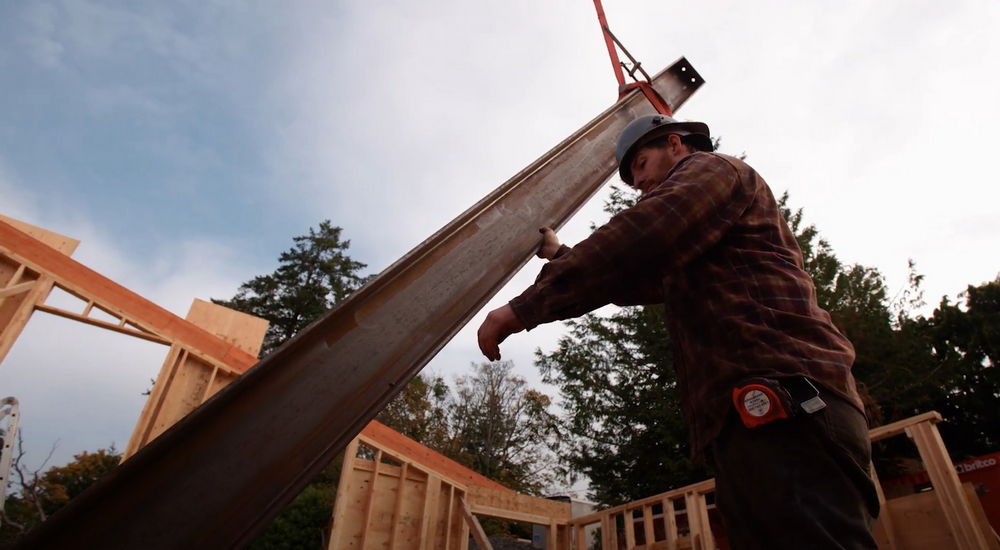
3. Is the cost per square foot a good rule of thumb?
The short answer is, no. “It’s the roughest of rough estimates,” says Agar. “Some people like it because it’s a relatable number, but it’s not a good predictor of final costs. Unfortunately, it leads many to proceed on a false pretense.”
Differences in lot location and topography will have a dramatic difference in building costs. And soft costs are not included in this rough costing, which can be up to 30% of your project cost.
With market conditions changing so rapidly and dramatically, an estimate for cost per square foot done two months ago might not represent what you end up paying when ready to build your house. More modern designs such as open floor plans are usually more costly per square foot because of the special materials and expertise they require. Plus outside factors such as porches, attics, and patios aren’t included in the square foot estimate but will still factor into your budget.
“Rather than cost per square foot it’s important to ask for an itemized costing,” says Agar. “It’s a more accurate picture of what the total cost will be to build that home and what each of the components is costing you. If decisions have to be made based on budget, you have an outline to guide that process. Cost per square foot doesn’t help with that.”
The economy of scale applies when building houses too. “Industry averages don’t tell you much when you are looking at building a custom home as each project is so individual. The cost per square foot spread over 3,000 feet will be dramatically lower than for an 850-square-foot laneway house. It’s more cost-intensive to build a smaller house on a per-foot basis,” says Agar.
How to conquer the cost issue? Meet with an experienced contractor to outline all the costs before the building starts. Ask questions about soft costs, fee structure, and potential materials pricing changes to determine an accurate picture of your total project cost.
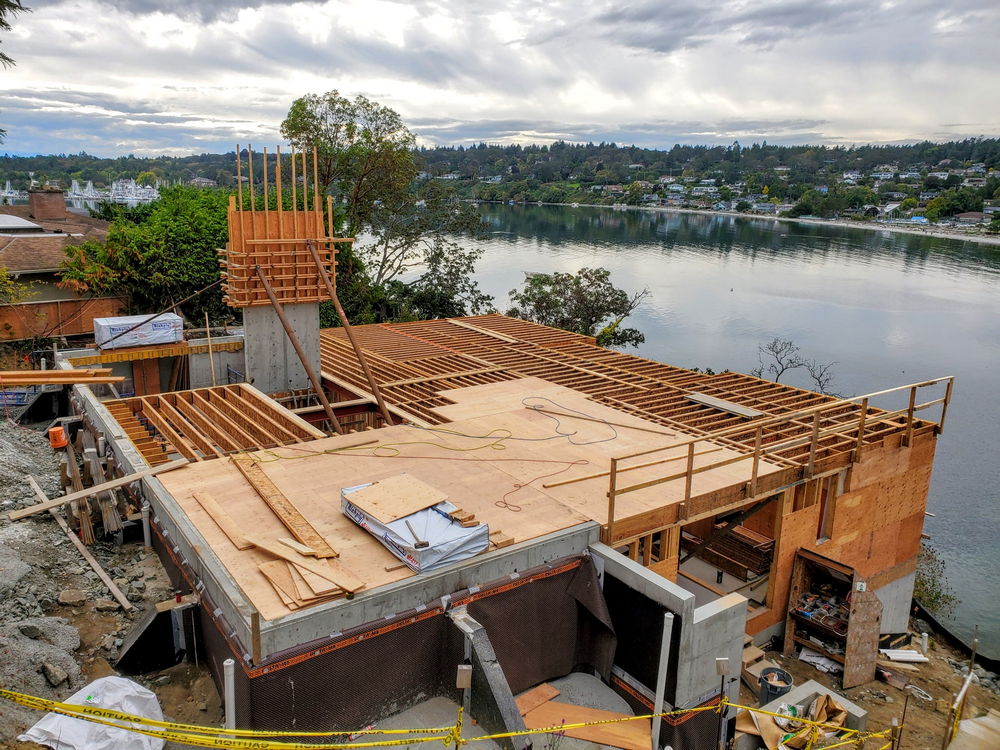
4. Does your new home designer really understand the cost of construction? Is this even important?
Often people buy a lot, hire an engineer or architect, work with a designer to develop their dream home, acquire permits, then talk to the builder – only to find out the home design they fell in love with can’t be built for the budget they have available. Now critical decisions have to be made to stay within budget, unnecessarily adding stress and time to the project. Does your designer understand construction costs and the cost implications of design changes?
“The answer is that some do, but many don’t,” says Agar. “The process works best when the designer and the construction team work in collaboration from the outset. This facilitates accurate costing as the process moves along and gives homeowners the opportunity to customize their priorities throughout the build. Making decisions along the way is easier and more efficient than backtracking and it puts the homeowner more in control of the final home.”
Many designers don’t design to a budget, which means homeowners fall in love with the design before knowing the funding needed to achieve it. Horizon coaches clients all the way through, helping the homeowner to focus on what’s most important.
“We work with homeowners to create a list of wants to inform the conceptual design. Then costs can be estimated. It helps the homeowners to determine what to keep and what to invest in at each step of the process.”
Making changes later in the process can be costly as well, which isn’t factored into the estimate. “Major changes mean redoing permits and that adds costs in a variety of ways. And if your timeline is affected it can delay bank funding.”
Why will you wish you asked this question? It will save you spending more time and money than needed on making changes – you will instead be focused on creating your spectacular forever home!
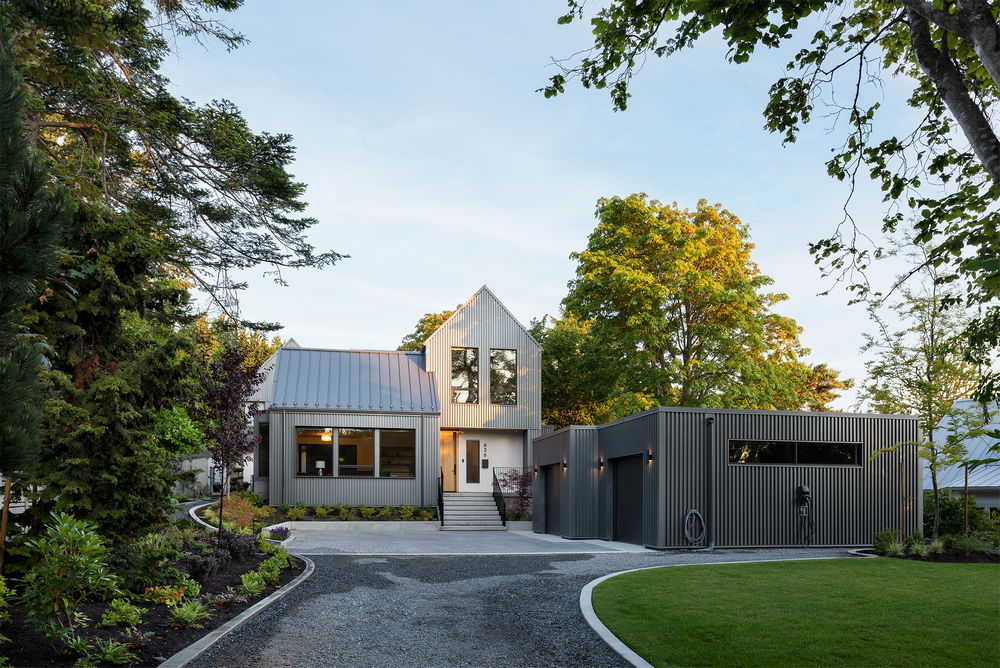
5. Ask yourself, are you ready to make a lot of decisions?
Custom means everything, and that’s a lot of deciding. Does everything have to be custom? Are there some things that could be less customized to reduce overload, budget, and time?
It’s also important to ask yourself if you fully trust your designer. Your designer is an important resource who can not only introduce design ideas but can help find a solution when you and your partner disagree on a design aspect of the home.
“Clients sometimes reach a level of fatigue in the build process. The decisions are endless, from where and how many plugs in each room to the lighting and bathroom fixtures, flooring choices and what colour to paint the walls,” says Agar. “Your designer and builder are invaluable resources when navigating the many decisions that need to be made. Ask questions about their process and make the most of their experience.”
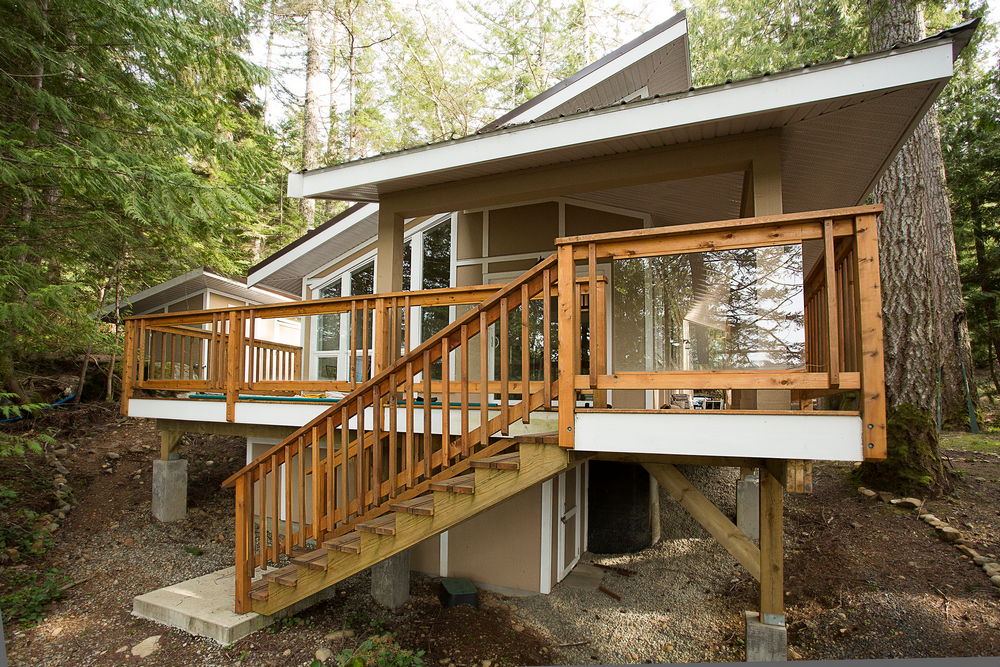
6. When is the best time to hire the builder?
Inevitably it’s sooner than you think. Hiring the home builder before the architect, even before buying the property, means you have someone on your team who is on top of current market conditions and is ready to collaborate with everyone involved in your project.
If you want your house built with minimal difficulties and cost overruns, the builder is one of the first contracts you sign.
“The smoothest builds happen when the builder is involved early in the process, especially when it’s important to stay within the initial budget,” says Agar.
Your custom home building contractor is your connection to everyone else involved in your project, They translate the theoretical, into the reality. They will be the most up-to-date on costs and what will be required to take it from your custom plans to a gorgeous, finished home. They will also be there when you need creative and innovative ways to overcome your homebuilding challenges.
If nothing else, always ask questions to make sure you understand all aspects of the process as it moves along. And maximize the expertise inherent in your build team. The builder, the architect, and the designer all bring strengths to the project to help you make your custom home a home that you love. You will be able to say you are glad you knew, rather than wish you knew.
